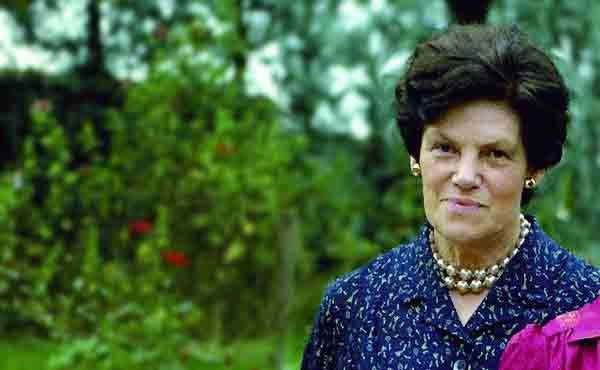The Prelate of Opus Dei, Bishop Javier Echevarría, presided over the closure of the investigative phase of the process of canonization of the Servant of God, Dora del Hoyo, which took place at the University of the Holy Cross in Rome on October 24th. In his closing remarks, the Prelate highlighted "the serenity and peace that her very presence spread and that helped others to be faithful on their path of following our Lord."
(Click on flicker file below for more photos of the ceremony):
The Prelate also made reference to "her professionalism, respect and attentiveness to everyone, and the way in which she approached all the different problems that came her way, with a lot of naturalness." In Dora, he said, these human virtues were vivified by her faith, hope and love for God.
Over the past four years, the life, virtues and reputation for holiness of Dora del Hoyo (1914-2004) have been the object of study by the tribunal of the Prelature of Opus Dei, which has questioned numerous witnesses about her. With the documentation collected, they will now prepare the positio – a biography and exposition of her virtues – that will be submitted to the Congregation for the Causes of Saints of the Holy See and to the Roman Pontiff, both of whom will study and offer a judgment on the sanctity of the servant of God. If their judgment is favorable, the Pope will declare that she has lived the Christian virtues in a heroic way.
With the documentation collected, they will now prepare the positio – a biography and exposition of her virtues.
Dora del Hoyo was already professionally dedicated to the work of the home when she discovered the message of sanctification of ordinary life preached by Saint Josemaria Escriva de Balaguer. She joined Opus Dei in 1946, and with her professional competence, cheerfulness, and generous self-giving, she contributed to spreading the value of work done well for love of God and neighbor, among young people all over the world.
____
Dora del Hoyo Alonso was born in Boca de Huergano (Leon, Spain) on January 11, 1914. In 1940, she moved to Madrid after finding work there as a domestic employee, and during this period she also met Saint Josemaria. From December 1946 until her death, Dora lived in Rome, moving there at the invitation of the founder of Opus Dei.

Dora died on January 10, 2004. Her remains lie in the Prelatic Church of Opus Dei in Rome, Our Lady of Peace, close to the tombs of the Founder, Saint Josemaria Escriva de Balaguer, and Blessed Alvaro del Portillo, his first successor. This closeness reflects what Dora has meant to the apostolic task entrusted to Opus Dei by the Church.
On June 18th, 2012 in Rome, Bishop Javier Echevarria, Prelate of Opus Dei, opened Dora’s process of canonization. During that ceremony, the Prelate declared: “I am more and more convinced of the fundamental role this woman has had and will have in the life of the Church and society. God called Dora del Hoyo to work in tasks similar to those carried out by our Lady in the home at Nazareth."